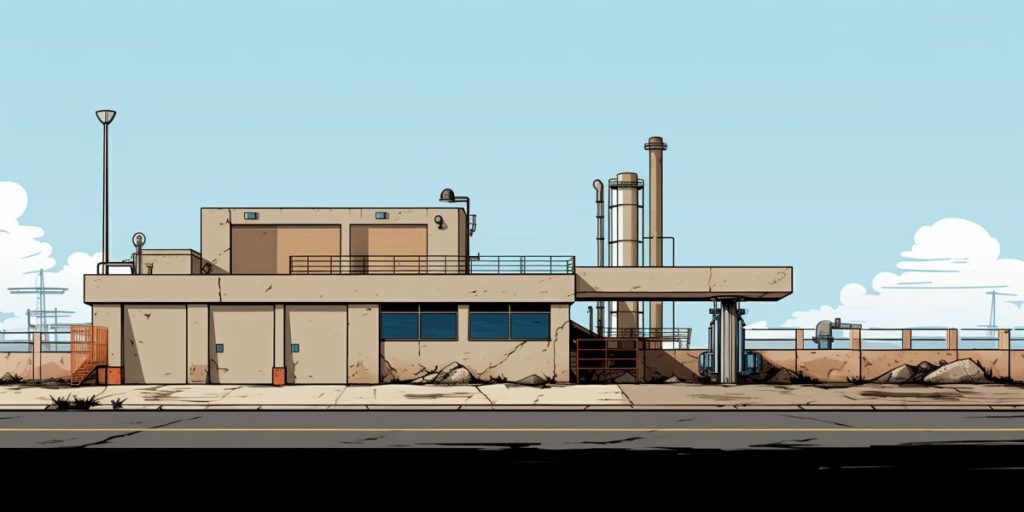The future of the Pentakomo waste treatment plant hangs in the balance due to scandals and operational issues, leading to the government ousting the operators and seeking temporary management solutions. The facility has faced challenges such as producing low-quality fuel, lack of buyers for by-products, contractual conflicts, and operational obstacles, with potential EU fines and legal disputes looming.
What is the future of the Pentakomo waste treatment plant?
The future of the Pentakomo waste treatment plant is uncertain due to scandals and operational issues, like producing low-quality fuel and lack of buyers for by-products. The government has ousted the operators and is seeking temporary management solutions while facing potential EU fines and legal disputes.
The Pentakomo Scandal: A Facility’s Uncertain Future
The Pentakomo waste treatment plant’s future is shrouded in uncertainty after a series of scandals and operational mishaps. Initially designed to create Solid Recovered Fuel (SRF), the plant’s agenda was derailed when, in a contentious move, the technology was switched post-contract award to anaerobic biological treatment. This method proved inadequate for producing the intended SRF, resulting in Refuse Derived Fuel (RDF) with a high moisture content and low energy value—essentially unusable as fuel. Consequently, the plant has resorted to landfilling the waste, ironically contributing to the problem it aimed to solve.
This €70 million EU-co-financed project came with stipulations that the government would secure buyers for the by-products. However, the facility has struggled to fulfill this requirement, leading to the government’s recent decision to oust the operators, Medcon & DB Technologies JV, giving them a mere 14 days to vacate.
Contractual Conflicts and Operational Obstacles
Faced with a lack of buyers for RDF and the government’s refusal to issue a final operating license, Medcon publicly addressed a letter to President Nikos Christodoulides, highlighting the conflicting directives from different government agencies. One agency mandated the burial of waste while another declared it illegal. This bureaucratic maze threatened to push the project’s companies to financial collapse.
Additionally, the plant faced technical setbacks with the discovery of heavy metals such as nickel and chromium in the waste, delivered by private entities without proper sorting. This contamination impeded the anaerobic units’ biogas production, undercutting the plant’s energy generation and economic feasibility.
Despite these challenges, the government’s response to the facility’s plight was curt and noncommittal, with functionaries unwilling to discuss the issues without top-tier authorization. With the plant’s technological intricacies, concerns have arisen regarding the government’s capacity to manage and operate such specialized equipment, potentially leading to further complications.
Temporary Measures and Future Plans
Amidst the turmoil, the government has outlined interim plans to manage the facility with the help of the Water Development Department (WDD), Limassol’s development company Anelem, and the household waste management company Sedal, until a new operator steps in. The government aims to draft tender documents for the plant’s current functioning and future upgrades aligning with the Municipal Waste Management Plan 2022-2028.
However, these plans are not without their critics. Questions remain about whether government personnel, lacking the technical know-how, can adequately run the plant. The impending legal disputes over the machinery, owned by the ousted operators, add another layer of complexity. Taxpayers face the risk of bearing the brunt of potential EU fines and court damages.
Troubles Beyond Pentakomo: The Helector Predicament
The Pentakomo fiasco can be traced back to the project’s inception. Initially, the contract seemed tailored for Helector, a company later mired in legal issues for overcharging municipalities in collusion with complicit officials. Medcon, stepping in after Helector’s disqualification, was forced to revise the plant’s specifications, setting the stage for the series of unfortunate events that unfolded.
In 2020, Helector was convicted of corruption, fined, and rendered an example of the rampant mismanagement plaguing waste treatment initiatives. This backdrop of corruption and scandal has cast a long shadow over the Pentakomo plant, leaving its future viability in question and the populace watchful for the next act in this ongoing environmental drama.
What is the future of the Pentakomo waste treatment plant?
The future of the Pentakomo waste treatment plant is uncertain due to scandals and operational issues, like producing low-quality fuel and lack of buyers for by-products. The government has ousted the operators and is seeking temporary management solutions while facing potential EU fines and legal disputes.
What were the challenges faced by the Pentakomo waste treatment plant?
The Pentakomo waste treatment plant faced challenges such as producing low-quality fuel, lack of buyers for by-products, contractual conflicts, and operational obstacles. These challenges have led to the government ousting the operators and seeking temporary management solutions.
What are the interim plans for managing the Pentakomo waste treatment plant?
Amidst the uncertainty, the government has outlined interim plans to manage the facility with the help of the Water Development Department (WDD), Limassol’s development company Anelem, and the household waste management company Sedal, until a new operator is found. The government aims to draft tender documents for the plant’s current functioning and future upgrades aligning with the Municipal Waste Management Plan 2022-2028.
What is the Helector predicament and how does it relate to the Pentakomo waste treatment plant?
The Helector predicament refers to the involvement of Helector, a company initially selected for the Pentakomo waste treatment plant project but later disqualified due to legal issues related to overcharging municipalities. Medcon, the company that replaced Helector, had to revise the plant’s specifications, which contributed to the series of unfortunate events that have unfolded. The backdrop of corruption and scandal surrounding Helector has cast a shadow over the Pentakomo plant’s future viability.

